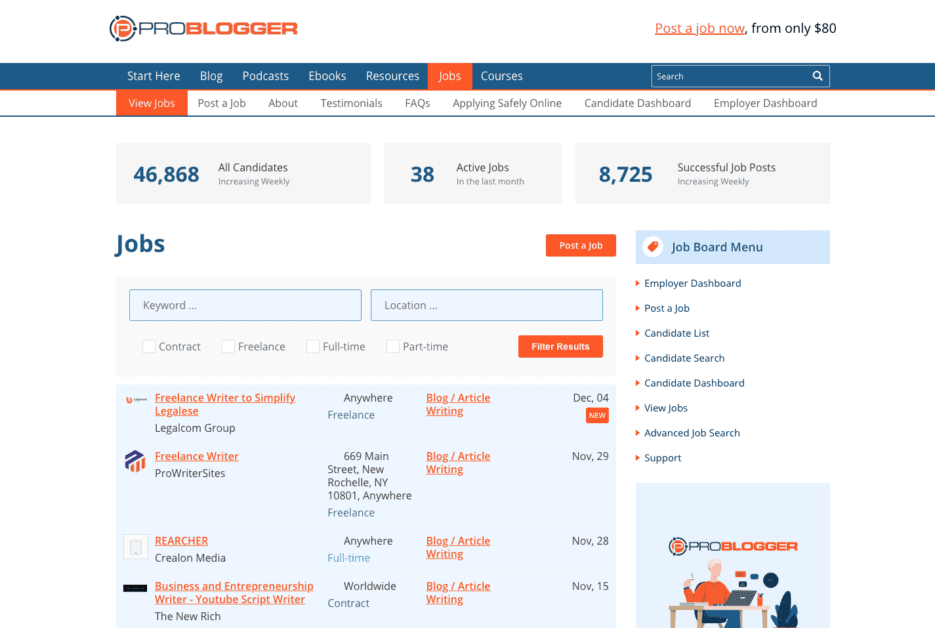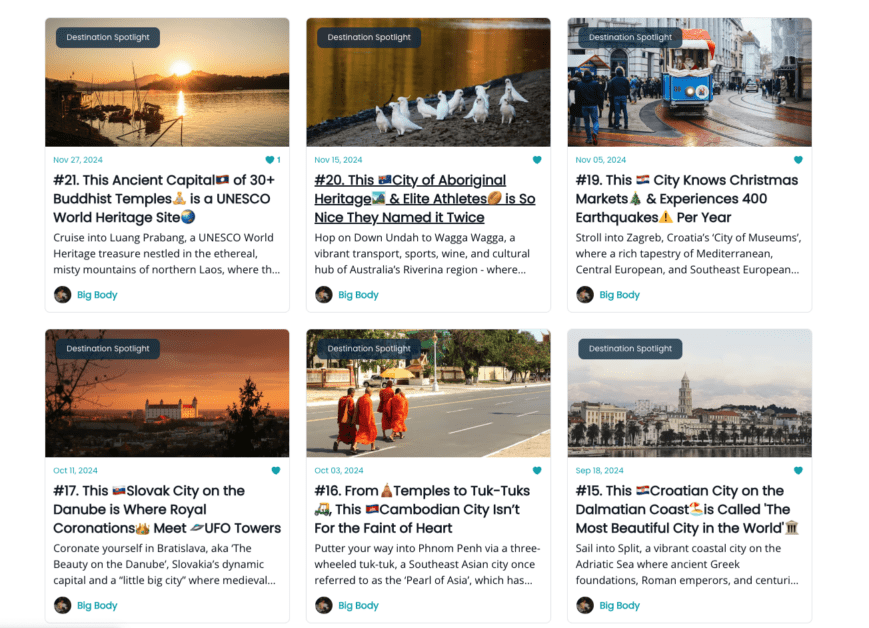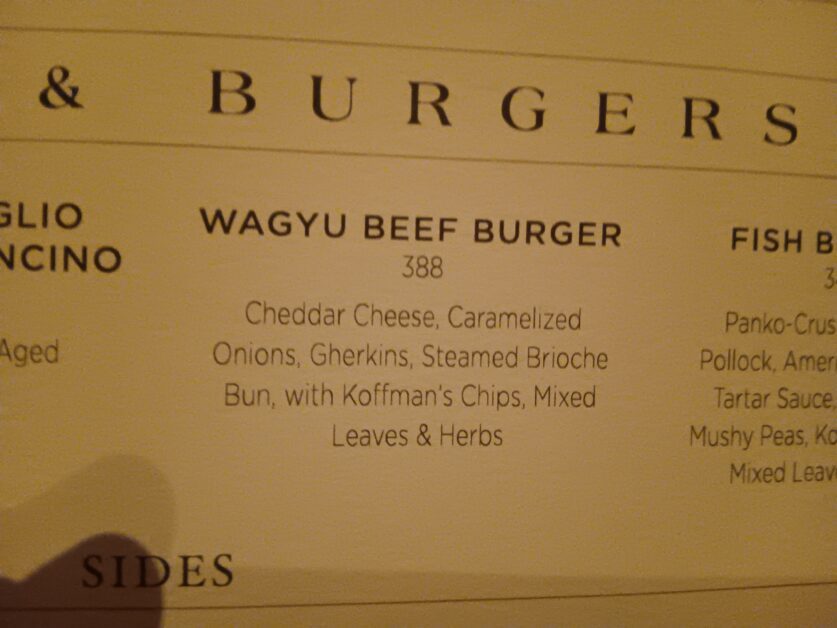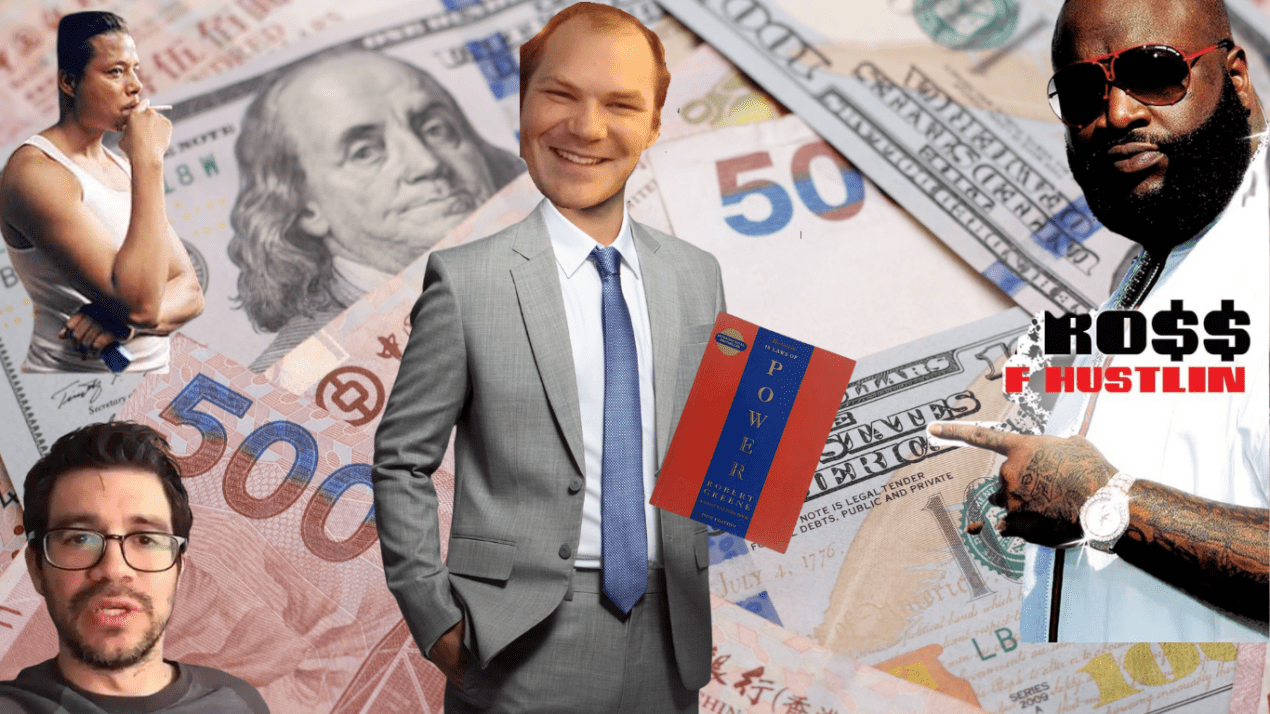9 Practical, No Upfront Cost Hong Kong Side Hustles to Stack More HKD
Hey. It’s me. Big Body. Your friendly neighborhood blogger who just so happens to live in one of the most prohibitively expensive cities in the world – Hong Kong.
I get it. This is a tough city to be impecunious in.
Rent is exorbitantly priced, cocktails cost an arm and a leg, and the overall value of what you’re able to purchase seems to be dropping off quicker than your freshman-year GPA after you discovered Popov vodka, Swisher Sweets, and long-cut Grizzly Mint pouches.
Note: I’m American so you’ll just have to picture whatever the Hong Kong university experience equivalent of that is. Also, Tai Lopez is a huge bozo so don’t think that me including him in the feature image is an endorsement of this grifter.
Either way, you need to make some extra skrilla and you need to make it now. You know, dough, doll-hairs, cheddar, clams, shekels, Versace lettuce, Hong Kong pesos. As the Wu-Tang Clan so famously rapped, ‘Cash rules everything around me, C.R.E.A.M. get the money, dolla dolla bill y’all.’
Here are 9 Hong Kong side hustles you can do to earn some extra skrilla so that you have some breathing room when the financial stress of this city inevitably feels like it is getting to be ‘too much’.
Pale Ale Travel Note: My goal is to provide you with practical side hustles that you can theoretically do with minimal setup. I’ve read other Hong Kong side hustle and passive income articles that were, frankly, offering up dangerous advice – like investing in cryptocurrency (note: I’m a huge Bitcoin/crypto proponent but there’s still an inherent gamble/risk in doing so). Further, many of the side hustles suggested require you to already have a significant amount of money to get started. This is from the ground up.
Legal Considerations in Hong Kong Before You Begin Hustlin’
Before you start Rick Ross hustlin’, it’s important to first understand if you can even legally engage in a side hustle under a traditional employment visa.
The general rule of thumb in Hong Kong is that your employment visa ties you to a specific employer and role/position and engaging in additional work outside of the scope of your visa (without official permission) is not allowed. Further, you cannot legally engage in a side hustle or freelance independently while on an employment visa without explicit permission/approval from the Immigration Department.
You can, however, freelance and/or engage in a side hustle in Hong Kong if you:
- Speak directly to your employer and get written permission,
- Ask the Immigration Department for permission,
- Register an LLC/set up your own company and apply for a Business Investment Visa – anyone can do this for a relatively affordable fee (and quickly) in Hong Kong.
Tax considerations and implications are also on the table once you register your business/begin engaging in your side hustle.
I get that it seems like a lot of extra work to do this. But in the interest of crossing your t’s and dotting your i’s, it’s just the administrative rigmarole you have to go through.
If you’re on a dependent visa in Hong Kong, you are free to work and/or study without needing to apply for separate visas and can engage in a side hustle without worry.
I don’t want to explicitly condone anything in this post. However, if your side hustle is solely online, primarily involves activities outside of Hong Kong, or is paid in cash/under the table, you may or may not follow this advice above.
Pale Ale Travel Note: If you are a dependent of a person who has been admitted to study, then the general rule is that both you and your partner cannot take up employment without obtaining permission from the Director of Immigration.
Freelance Writing & Blogging

ProBlogger is one of the freelance writing job boards I highly recommend keeping an eye on!
I might be somewhat biased towards this first Hong Kong side hustle as it’s currently my primary source of income. That wasn’t particularly by choice and I’m no Scrooge McDuck because of it but I am (currently) at least at a point where my website, hosting, and administrative costs of running Pale Ale Travel are well taken care of, solely based on money earned from blogging.
Even before I transitioned into ‘The Blog Life’ full-time, freelance writing was the core side hustle for this Big Body, one that ultimately opened up professional doors and opportunities that I never expected.
In Hong Kong, time is precious and I fully understand after a full day slugging it out in an office that you don’t want to commute elsewhere just to earn some extra income. That’s why freelance writing and blogging are timeless and accessible side hustles (they are completely online).
The primary questions I’d ask yourself when contemplating between starting your own blog and/or pursuing freelance writing are:
- Do you have a particular voice, passion, or unique insight that you want to express fully independent of a third-party
- Do you want to contribute to an already established publication/platform?
- How much control do you want to have over getting things up and running?
- Do you want payment now or are okay working towards something that might not pay off for months from now?
If you want complete control over what you publish, don’t mind taking some time to get things up and running yourself, and aren’t particularly pressed to earn money right away, then I recommend starting your own website and blog.
If you want to be paid upfront for your writing, don’t mind working with editors/third parties, and don’t want to go through the process of finding a website, setting up hosting, and self-publishing, then I recommend pursuing freelance writing.
Keep in mind that you can also do both simultaneously. However, I recommend starting with one and just getting the ball rolling.
Getting Started Writing
To begin blogging, select a niche that aligns with your passions, professional expertise, or market demand – I generally find that the first two are the most sustainable for consistent publishing) – consider using a platform like WordPress.org, WordPress.com, Beehiiv, or Ghost for blogging. Focus on creating high-quality, consistent content, consistency being even more important than publishing something that is 110% perfect (in my humble opinion).
Monetization manifests in the form of affiliate marketing, sponsored posts, selling digital products, subscription-only premium content, or joining advertising networks like Google AdSense, Monumetric, or Mediavine (Pale Ale Travel is currently on Mediavine Journey).
To get started with freelance writing, several websites that I’ve had success with include ProBlogger, BloggingPro, MakeaLivingWriting, MediaBistro, and FreelanceWriting.com. I recommend staying away from sites like UpWork, Freelancer.com, Constant Content, and Fiverr, as it is generally a race to the bottom with pay rates and is riddled with spam.
Avoid any content mill like the plague.
Another successful way to gain freelance writing experience/jobs is to directly pitch websites and publications. What I generally do is conduct a Google search by typing [“travel writer contributor”] and variations of this and then apply via their online portal or send an email with my portfolio. If there is a specific site you want to pitch, simply check their contributor/jobs page and/or search ‘site:specificwebsite.com + contributor’ (and variations of this).
To get the juices flowing, here’s a post by MakeaLivingWriting breaking down 20+ popular websites that pay freelancers well!
Hong Kong expat websites and forums like GeoExpat and AsiaXpat are, in my opinion, untapped platforms to advertise your freelance writing services (or any professional service) for as little as HK$500 for six months (per business listing). Both also have job boards/career portals with a small batch of positions listed.
Finally, before pitching a website and/or publication, I recommend getting together a simple portfolio that you can easily share, which you can easily do with Clippings.Me.
Pale Ale Travel Tip: If you’re curious about getting started blogging and are unsure of which platform to use, make sure to check out my comprehensive guide breaking down Beehiiv vs. WordPress.org for blogging.
Starting a Local Newsletter

A collection of my weekly newsletter editions – where I send a unique destination straight to your inbox.
Starting a newsletter is somewhat in the same realm as starting your own blog, however, there are some nuances I want to draw out. Unlike starting a blog, a newsletter is a far more direct way to connect with a specific audience through curated, consistent, valuable content – right to their inbox.
In a dynamic city like Hong Kong, I think this is one of the side hustles with immense potential.
Whether you’re covering local events, cultural insights, food or drink reviews, expat moving tips and considerations, or whatever you think resonates with residents, a well-targeted newsletter can be your direct funnel to generating income – specifically through sponsorships, paid subscriptions, referral programs, affiliate marketing, and built-in email newsletter ad solutions (like on Beehiiv).
You, of course, don’t have to start just a local newsletter. If you want to go broader, do it! Productivity tips, global market insights, dating advice, you name it, you can write about it.

To get started, choose a platform like Beehiiv, Substack, Kit, or Mailchimp to build and publish/distribute your newsletter. All are beginner-friendly and provide tools to empower you to grow your subscribers.
I also recommend building your subscriber base via social media, expat forums, local communities, word-of-mouth, organic content, and paid advertising (the latter if you have a budget), as it can efficiently (and significantly) increase your total audience.
Something as simple as consistent, informative posts on LinkedIn or engaging with social media groups online dedicated to Hong Kong, followed by a subscribe call to action (CTA) to your newsletter (and providing the sign-up link) can be a tactic to drive growth and readership.
I use Beehiiv for my weekly newsletter and funnel subscriber sign-ups via this blog, listing it in free newsletter directories, and engaging with people on social media (primarily Twitter).
I chose Beehiiv due to its built-in monetization features, like a competitive partner program (earning commissions by introducing new customers to Beehiiv), newsletter referrals (‘Boosts’), premium subscription integration, and a native ad network that connects publishers and advertisers.
Develop & Deploy Mobile Apps
Developing mobile apps is a lucrative and scalable side hustle for my more tech-savvy friends out there, who sport a background in computer programming, or who have enjoyed success using AI platforms like ChatGPT to code specific functions, plug-ins, and small algorithms.
With an increasing reliance on mobile apps and solutions for literally everything in life – for goodness sake, I have an app installed that keeps track of how long I haven’t indulged in a specific vice and/or bad habit – there’s significant demand for innovative app ideas that are tailored to Hong Kong’s local and international hybrid-market.
If you’re new to app development, consider learning the basics via a platform like Udemy, Udacity, Coursera, or freeCodeCamp. Harvard also posts free coding classes online, which many people rave about. Codeacademy is another popular platform that provides access and tutorials to programming basics for free.
Ask yourself what problem the Hong Kong market needs a solution to. How can you help solve it? What would make your life easier in Hong Kong that could be translated into a simple application? Start there.
Or, target broader markets with utility apps, games, or productivity tools.
Pale Ale Travel Tip: A podcast episode I recently listened to by Niche Pursuits had on a guy who was making money off of Facebook’s Performance Bonus Program, where he would create meme/themed/niche pages, generate posts that ‘went viral’, and earn based on interactions with said content (reach, reactions, shares, and comments). I don’t know enough about this to write authoritatively on it but I recommend listening to the podcast episode here!
When you’re ready to launch, you can list your app on the Google Play Store for $25 or the Apple App Store for $99 – both of which allow you to (potentially) reach millions of users. Regular updates, implementing user feedback, customer service, and app optimization are necessary to stay competitive.
To monetize your app, consider introducing a freemium model with in-app purchases, subscription-based services, or ad integrations through platforms like Google AdMob.
Further, collaborating with Hong Kong-based businesses to create and deploy customized apps may also be an effective alternative to app marketplace listings. Local coworking spaces like The Hive and Garage Society regularly host tech (and other professional) meetups to network and connect with like-minded developers and/or collaborators.
Local Food & Neighborhood Tours

Who wouldn’t pay to be taken to where the best egg tart in Hong Kong is?
Everyone is hungry and a good chunk of travelers want ‘local insight’ injected into their trip, both of which make food and neighborhood tours a fantastic side hustle for both locals and expats in Hong Kong. This is also one of those destinations that isn’t particularly cheap to travel to, so a good portion of travelers coming into the city have some extra dough they don’t mind spending on expert insight!
By leveraging your local (gastronomic) knowledge and unique perspective of the city, you can offer personalized experiences for tourists, fellow expats, and even long-time residents looking to learn or discover something new in ‘Asia’s World City’.
To get started, I recommend a granular approach that can then be accordingly scaled or expanded based on interest, feedback, and increasing understanding of what works/what doesn’t. Doing so is also a heck of a lot easier to market as well.
For example, design a ‘thematic tour’ based on specific interests – ideally something that is your bread and butter. This could be a tour of Hong Kong’s best siu mei restaurants (Cantonese BBQ), street snacks (like curry fish balls, cheung fun, siu mai, etc…), dai pai dongs, cha chaan tengs, or craft beer bars.

…or the best Cantonese BBQ.
Walking tours of historic and bustling neighborhoods like Sham Shui Po, Tai O, Wan Chai, and Sheung Wan/Sai Ying Pun can be a great way to attract clients. You can highlight local architecture, cultural landmarks, and unique shops, or go the extra mile and pair it with restaurant and cafe visits. Consider partnering with local hotels or travel agencies to cross-promote your services!
Promote your tours through platforms like Airbnb Experiences, Viator, or TripAdvisor, use social media, or create your own website (see above) to act as the funnel for acquiring clients. Running paid ads on Google and Facebook, along with joining both local and international Facebook groups, expat boards, and tourism forums can also be an effective way to connect with potential clients.
With Hong Kong’s F&B scene having taken a major hit over the last several years, I think this is a symbiotic side hustle that the city is in dire need of.
Pale Ale Travel Tip: I’ve still yet to have anyone take me up on doing this completely insane self-guided Hong Kong pub crawl I came up with. If you’re interested, let me know and I’ll bring the McDoubles for us to fill up prior.
Start a YouTube Channel
As you can tell by now, I’m big on all things content. I find it especially fascinating that you can create miniature digital assets that exist in perpetuity while generating a steady income.
Creating a YouTube channel is the definition of a digital asset that stands to potentially generate income for years to come. It’s something I’m striving to dive into more these days as I’ve just generally found in my publishing career that people are highly visual consumers.
Look, this is not to make it sound like YouTube is easy by any means. I am not even close to cracking the code and generating income from it. However, it can technically be a low upfront cost side hustle in Hong Kong that could theoretically be started with just your phone and free editing software like CapCut, ShotCut, or DaVinci Resolve (I use the former).
And, based on my personal and professional content consumption and production, I don’t see many creators out there consistently publishing long-form or short-form content on YouTube. Instagram? Yes. YouTube? No.
Pale Ale Travel Tip: If you’re curious about what I love and don’t love about living in Asia’s World City, make sure to check out my post breaking down the pros and cons of living in Hong Kong!
I think the video market for day-in-the-life, food, local experience, hiking, business, and everything in between is something ripe for the picking. I also don’t even think it’s the niche so much that matters with content creation (within reason), rather, how consistent you are.
By default of whatever content you create focusing on Hong Kong, I do not doubt that the competition in that sphere is exponentially lower than in the U.S., U.K., Canada, or Australia. It’s not even just other residents of the city that I suspect would engage with said content, as Hong Kong’s international positioning and diaspora have solidified its social (and parasocial) and professional tentacles all over the world.
As your channel grows, hitting over 1,000 subscribers and 4,000 hours of watch time across all videos in the last 12 months (for long-form), you can then monetize with YouTube’s Partner Program (to earn from ads). Cultivating partnerships and sponsorships with Hong Kong-based businesses or international brands, along with using affiliate marketing links to recommend products you use in featured videos, are other popular ways to earn via YouTube.
It’s also a fantastic platform and promotional arm for other businesses and/or services you may be engaged in, like a food or neighborhood tour agency (see above!).
Personal Training
Show me another city in the world where everyone is as gung ho about fitness as Hong Kong and I’ll show you a liar. Even for this Big Body, it is the one city in the world that he has even gotten in semi-decent shape in.
With long work hours, more gyms and training facilities than you can shake a stick at, and a significant portion of the population with extra income to spend, people are more than happy to pay for personal training services. I’m sure someone like Gary V or Tony Robbins has said at least a thousand times how ‘health is wealth’, which as cliche as it sounds, I can’t argue with the great motivational evangelists of our time.
In the exercise and physical fitness landscape of Hong Kong, it especially seems post-pandemic that the city has seen a surge in personal training services. I attribute this to the fact that traditional gyms and exercise facilities were closed or somewhat unpredictable with their availability during those dark years, so people took to the streets to burn some “cals” without third-party interference (or prohibition).
While I don’t even think it’s a ‘mandatory’ requirement to have official fitness and personal training certifications should you want to be a freelance PT, from everything I know, it greatly helps. Globally recognized and popular certifications like NASM, ACE, and ISSA can be earned online and generally cost around HK$5000 to HK$8000.
However, once you obtain one of these qualifications, you can hit the ground running. Like I said though, it’s not mandatory. I have a good buddy who spent a decade plus working in investment banking and needed a break. So he began training friends and colleagues part-time – without any major qualifications except having a hot bod. This has now scaled into a full-time roster of clients where he’s earning more than he did working in banking.
The PT-gym landscape is a quid pro quo one, so you’ll either need to discuss a rental fee to pay whatever gym(s) you train clients out of or “do it under the table” (but you may risk getting kicked out). Alternatively, you can meet clients in public parks like Victoria Park or Kowloon Park, where outdoor fitness groups, sessions, and classes are now the norm!
Promote your PT services via word-of-mouth, networking events, and social media – Instagram is especially popular for Hong Kong PT workout tips, client transformations, and fitness challenges. Or list your services on apps/sites like ClassPass, or even by partnering with commercial and boutique gyms (pending you have official certifications).
Translation Services
Hong Kong is a multicultural city in many ways (in other ways it actually is far from it), meaning you have hundreds of thousands to millions of bilingual or multilingual expats and locals. Offering translation services is a formidable side hustle for those with a sharp tongue and mind, especially in a city with an ever-evolving global business dynamic and environment.
With Cantonese, Mandarin, and English clocking in as the most spoken languages in the city, there’s no shortage of translators needed to bridge the gap between local (and Mainland) businesses/professionals and international clients.
Like professional training, there is no official language certification needed. However, it can help get your foot in the door with more corporate, commercial, and business translation services. But don’t worry, it isn’t just English, Mandarin, and Cantonese that are in demand, I’ve had friends pick up part-time and/or contract translation jobs for everything from French to Japanese, Korean, German, Italian, and Spanish.
Networking is the key to landing a contract and/or part-time translation job as a side hustle in Hong Kong. It’s a surprisingly close-knit city that can open a lot of doors. Start first with reaching out to your country’s Chamber of Commerce, attending Meetup.com events, or attending talks held by the Hong Kong Translation Society (often held in collaboration with another entity/group).
If you’re new to translating, consider creating a professional profile to showcase your language pairs, experience, and pertinent qualifications. You can also quickly build a portfolio by initially offering discounted and/or volunteer translation services or by translating non-sensitive documents. Once you have a portfolio and understanding of the market, consider looking for high-paying translation opportunities in industries like law, finance, and healthcare (these are where the premium rates are at).
While I don’t know a ton about the various online translation platforms out there, if I had to hazard a guess, they are now somewhat similar to once-popular writing platforms – a race to the bottom for the lowest rates possible. So, I recommend being skeptical when searching for translation jobs online.
With that being said, sites like Indeed, JobsDB, and even LinkedIn are stacked with part-time and contract translation jobs, which I would trust far more than a translation mill/agency that contracts with said companies and then independently hires translators at a pittance to complete the work.
Teaching or Tutoring

While this is the quintessential side hustle that many people first think of when it comes to making some extra money in Hong Kong, I’m going to branch out a tad with things in the second half.
Teaching/tutoring might be the most practical side hustle for expats or locals in Hong Kong thanks to the city’s (rigid yet thorough) emphasis on education and its dynamic population of local students, international families, and everyone in between.
It’s no surprise that English language teaching and tutoring are especially in demand and countless parents seek private tutors and part-time teachers to help their children excel in reading, writing, and speaking. For more ‘traditional’ and ‘structured’ teaching/tutoring opportunities, consider teaching at a language center or tutorial center.
For the latter, most roles require a TEFL (Teaching English as a Foreign Language), CELTA, or TESL certification, which can be earned online or through in-person courses for anywhere from HK$800 to HK$20,000. That’s a huge range but if you want to earn an internationally recognized certification, you can expect to pay over HK$7500.
There are plenty of other opportunities to teach subjects like math, music, or even niche skills like test prep and coding in Hong Kong, all of which also boast tutoring and tuition centers spread across the city (or consider going private!).
Pale Ale Travel Tip: I have a friend who actually pairs his tutoring/teaching services with a Substack newsletter breaking down the methodology of his teaching, which has begun generating a little snowball of side income that is starting to gain traction.
Tutoring for standardized tests like the SAT, GMAT, or IELTS, is especially lucrative and Hong Kong families are typically willing to pay a premium for these tutoring services. Further, coding, robotics, and STEM-related tutoring services are also seeing a surge in popularity and can easily command rates above HK$1,000 to $1,500 per session.
For expats fluent in other languages, like French, Japanese, or Spanish, there is absolutely a demand for these!
Join social media groups and forums like ‘Private Tutoring in HK’ (Facebook), ‘English Teachers in Hong Kong’, and ‘International Tutors of Hong Kong’ to connect with families, attend professional (and social) networking events, list yourself on sites like My Hong Kong Tutors, My Private Tutor, Tutor Seek, and even the Hong Kong Tutor Association.
Pale Ale Travel Note: Popular online teaching platforms like Preply, Italki, and Verbling also offer chances for additional income. However, these online platforms typically require language teaching certifications and can be inconsistent with work.
Monetize Teaching Your Hobby
Would go out to play baseball right near Lion Rock way back in the day (pictured above).
Teaching isn’t just only for ‘hard skills’ or academic subjects, it can extend to anything. Which brings me to this: consider monetizing teaching your hobby.
If none of the above side hustles resonate with you, look inward and take inventory of what you really love. Monetize a hobby or expertise that you have.
I haven’t seen any other city in the world where people have so much disposable income to spend and have no problem spending it on hobbies/personal growth. What makes it the perfect city to do so is that everything is just so darn convenient, so people can fit more into a single day than say someone who needs to commute two hours a day via car.
So, what exactly do I mean by monetizing your hobby? Well, here’s what I’ve seen several friends in Hong Kong do.
- Teaching basketball: One of my top dawgz began his early days as a realtor but built up a sizable following over the years recording videos of himself playing basketball/giving basketball tips. He leveraged this into a nearly full-time career, where both kids and adults take basketball lessons from him.
- Baseball: In a similar vein, one of my best buddies who ended up unfortunately leaving, taught baseball to high schoolers and would travel to several schools to put on hitting clinics.
- Chess: I ran into a guy at a bar once who told me he was a full-time chess teacher, charging roughly HK$1200 per hour to beginners. The wild thing was his ELO was quite low but there happened to be a somewhat sizable market for absolute beginners looking to get their feet wet!
The above are simply meant to spark a little somethin’ somethin’ that causes you to reflect on what you are truly good at and could monetize. I truly believe that because Hong Kong is such a massive city, there’s a market for those who want to try a new hobby and/or improve at it.
Pale Ale Travel Tip: My nearly seven years in Hong Kong have brought about a lot of successes and failures. Here are 5 things I wish I had known before moving to Hong Kong that sum up a bit about my experiences here.
Pet Sitting & Walking

I’d hang with these wild cattle in Sai Wan all day if I could.
Hong Kong is the number one spot in the world for plenty of things. I could spend time listing them all but this post is already over 4,000 words and we want to get this show on the road and start wrapping things up.
What my tongue-in-cheek statement about Hong Kong being number one in the world was meant to lead to is that it’s also number one in the world for people who are too busy and/or lazy to take care of or walk their pets.
People work in Hong Kong. And they work extremely long and stressful hours. Personalized pet walking services, like walking, pet sitting (including overnight and long-term), and pet grooming are greatly in demand. It also offers high degrees of flexibility and relatively low upfront costs. Further, you can’t quantify the joy of getting to spend time with adorable derpy furry friends.
Popular pet care platforms and apps like PetBacker, TrustHousesitters, Pawshake, and Rover are great ways to find clients in Hong Kong. Just simply create a profile, list your services, and connect with those in need of pet care services. Further, joining expat and pet-focused Facebook groups and/or neighborhood groups can be a fantastic way to advertise your services.
Finally, it isn’t even that crazy of a thought to just head to any of the major pet parks and/or popular areas where pet owners congregate on walks to connect with pet owners and offer your services!
“Word of mouf” (Ludacris-style) definitely seems to be one of the most effective ways to get clients due to how near and dear people hold their pets and skepticism towards leaving their fur babies with just any old stranger.
Pale Ale Travel Tip: One of the biggest cons of living in Mid-Levels (along with a lot of other parts of Hong Kong) is the fact that people don’t pick up their dog’s poop. Don’t be one of those people if you take care of pets for a side hustle in Hong Kong.
Rick Ross Hustlin’, Hustlin’, Hustlin’

I definitely need another Hong Kong side hustle or two after eating this nearly USD 50 burger at the Shangri-La.
Sometimes, whatever ‘the machine’ is paying you just isn’t enough to get by or save for retirement – especially in one of the world’s most prohibitively expensive cities. But there are options to help ‘break out’ and establish a second source of income (even if small).
Personally, my various side hustles over the years have brought me a lot more joy than whatever client I had was paying me for “traditional work.” They were always something I could look forward to because they offered a glimmer of hope that something else was potentially out there for me.
Even if your side hustle(s) doesn’t bring in Tai Lopez amounts of money (psht…you don’t want to be like that scamming bozo anyways), it can still change your life, savings trajectory, and both personal and professional development for the better.
I’m happy to expand on any of these side hustles in greater detail (to the degree that I’m knowledgeable about them), or anything else you want to know about living in Hong Kong, so please don’t hesitate to reach out to me at info@palealetravel.com.
Earn well everyone,
Big Body
Big Body is a voracious lov…eater, a cowardly fighter, and a self-proclaimed curry goat BBQ-eating champion (don’t forget the donkey milk) who likes Stoicism, baseball, and writing in the third person. Having worked for himself for the last 7 years, he isn’t particularly successful but he does still drink ice-cold Sapporo draft beers with the best of them and knows his way around a Dai Pai Dong or two. He is based in Hong Kong but you can still find him in Saigon, Osaka, and Vienna for extended periods.
